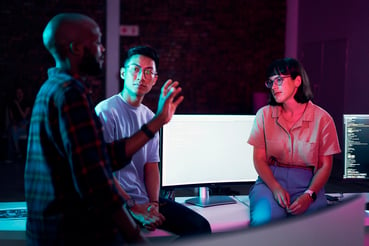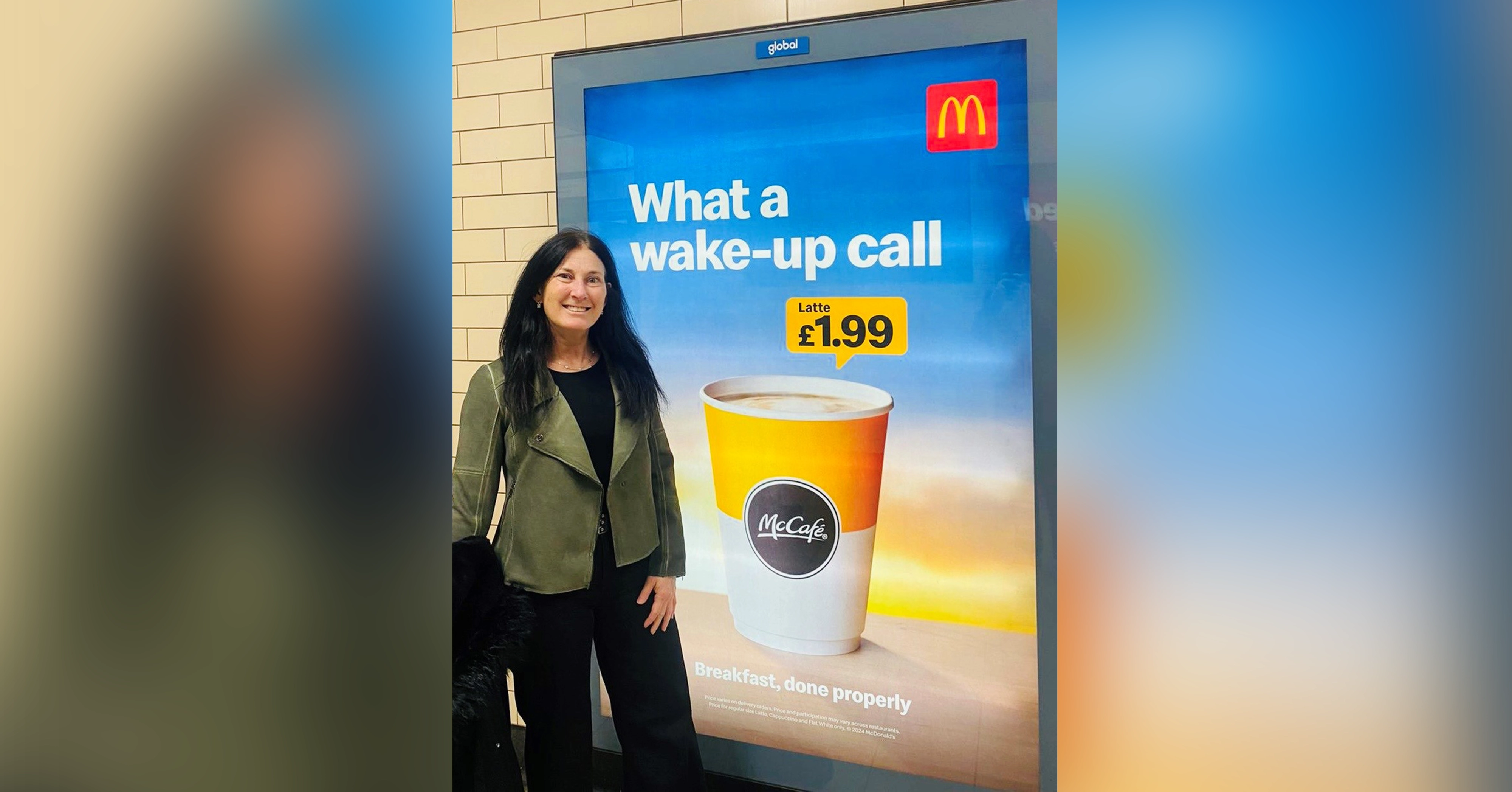How could AI change the way we market research?
The first time I used AI was 10 years ago. Already.
At that time, I was a market researcher at Unilever, always looking for innovative ways to uncover insights in a faster and cheaper way. I then piloted this new AI-powered research, developed by a brand new start-up, whose aim was to uncover trend platforms by scraping the internet. I remembered being blown away by its speed and low cost. Not fully by the quality of its insights though. Not yet. It still required the love and care of seasoned researchers to transform its learnings into actionable insights. But hey, it was just the beginning of the AI era in the world of market research.
Over the past decade, AI grew in importance, sophistication and application. So how has AI changed the way we do market research?
It has revolutionised data collection, reframing the way we source insights
Gone are the days of traditional research using pen and paper surveys. Today AI can automate data collection by engaging with people through chatbots and virtual moderators. It can work from numbers, text, voice messages, images or videos. No matter the format, AI can transcribe, categorise and analyse the information. With facial coding, voice AI or natural language processing (NLP) algorithms, AI analyses people’s sentiments to help us better understand their perceptions and preferences.
In a recent experiment comparing Human vs AI, VoxPopMe estimated that a piece of qualitative research that would traditionally take 13 hours now takes a little bit less than 1 hour with AI (AI-powered qual | VoxPopMe).
AI changes our notion of time, it changes our notion of cost. That’s why at Oxford, we leverage AI for our clients whenever it can help us drive more efficiency and impact, for example partnering with Discover.ai to uncover insight territories, processing a huge amount of content far faster than traditional approaches.
But beyond driving efficiency, this completely reframes the way we think about research. We can stop relying on system 2 surveys and become more creative in the way we source data, tapping into people’s conscious and unconscious thought processes, emotions and behaviours.
It casts the net so wide that we’re no longer at risk of missing out on any insight
AI processing power is far greater than our human brain. It can perform complex computations at incredible speeds. Where we used to draw insights from one single source of data, AI can work across an incredible amount of sources. Be it from social media, blogs, forums, surveys, reports or internal banks of knowledge, AI can analyse and identify patterns to draw powerful insights.
Where our brain is at risk of data overdose, AI will digest them with ease.
Be it in the world of consumer goods or healthcare market research, AI can spot hidden insights, non-obvious patterns or emerging trends very quickly. Much faster than any human analysis. We will no longer miss out on any insight nor trend.
So no surprise to hear that according to Forrester, insights-driven businesses with advanced capabilities are 8.5 times more likely than their beginner counterparts to report annual revenue growth of 20% or more (source: Build An Insights-Driven Business | Forrester).
It predicts future consumer behaviours giving us a huge competitive advantage
The power of AI is not just about analysing huge sets of data. By understanding the patterns of historical data, it can also predict how consumers will behave tomorrow.
AI can predict future demand for products and services based on past sales data, consumer geo-localisation and even weather forecast.
This also has huge implications for the way we pre-test innovation, design or communication. No need to ask consumers anymore. Today, in just a few clicks, we can upload images of packaging, prints or shelf display and instantly predict, with a mind-blowing accuracy, what people will pay attention to and, as a result, what needs to be optimised to drive stronger impact.
AI’s power is so great, that we can actually wonder if it will replace the need for market researchers in the future. Can market analysts or data scientists really compete with the processing power of AI? 40% of researchers expect AI to explain survey findings as well as humans within 10 years. Yet only 7% of them see it as a threat to their job (source: AI-in-MR-Final.pdf (qualtrics.com)).
| Why is that? Are researchers naively optimistic about their future? Or do they see AI as a powerful technology that will always require their expertise to bring to life the magic of insights? |  |
As ever, any great advancement in technology comes with big risks, and market researchers will need to help us deal with them. One big risk is to take every piece of AI analysis at face value. Let’s face it, except for those who are real AI experts, designing and training algorithms, AI is, for the rest of us, a bit of a black box. Most of us don’t really know how the algorithms have been built or how the training data set has been designed. Which means we don’t really grasp the potential biases. How many of us have used ChatGPT or Bard AI, been impressed at first by the apparent quality of the answers, but then been left disappointed by finding out some unverified facts? Exactly as it was 10 years ago with my first experience of AI, and no matter how much more powerful it has become today, market researchers will still be required to apply their critical thinking to validate and interpret AI findings in the broader business context. If not, we will be at risk of taking actions from flawed insights.
Another big risk is cybersecurity, for which market researchers’ skill set will need to evolve. How to protect their consumers’ and customers’ data privacy? How to ensure compliance with the latest data regulations? As AI grows in importance, market researchers will need to learn how to use it safely.
But to really understand the impact on market researchers, we need to go back to the fundamental difference between AI and the human brain. Yes, AI has more processing power, but the human brain has much more than that. It has the ability to process information holistically, integrating various sensory inputs and emotions. It can demonstrate empathy and curiosity to deeply understand consumers, customers and their needs. It can link insights with a broader business context, industry knowledge and past experiences.
It is the combination of AI and Human Intelligence that will transform the quality of insights, not one or the other. AI must be used as a powerful partner that market researchers will work with and not compete with, by understanding both its benefits and its limitations. For their survival, market researchers will need to embrace this paradox of being both more data- and more human-skilled.
But let’s not forget why market research is so important. Of course, it is about uncovering powerful insights, but it is also about guiding the business to turn these insights into actions. An insight is worth nothing if it doesn’t drive impact. Market research is about inspiring the business to take the right actions that will drive sustainable growth, by making ethical choices that will matter for people, planet and profit.
For this you need data and insights but also creative thinking, storytelling, courage and influencing skills. You need Human Intelligence.
About the author
Being naturally curious, Marie likes to understand people and their lives, their deeper emotional needs, the reasons behind their behaviours, as well as trying to predict what they will do tomorrow. Above all, she loves turning those insights into real action, to drive behaviour change, business growth and purpose.
Before Oxford, Marie worked 16 years in market research at Unilever, in strategic and capability roles as well as local and global business roles.

Share this
You May Also Like
These Related Stories

The latest B Corp research

Tomorrow’s looking different: what to do when market trends are all about change

.png?width=657&height=57&name=OXFORD%20LOGO%20(1).png)
No Comments Yet
Let us know what you think